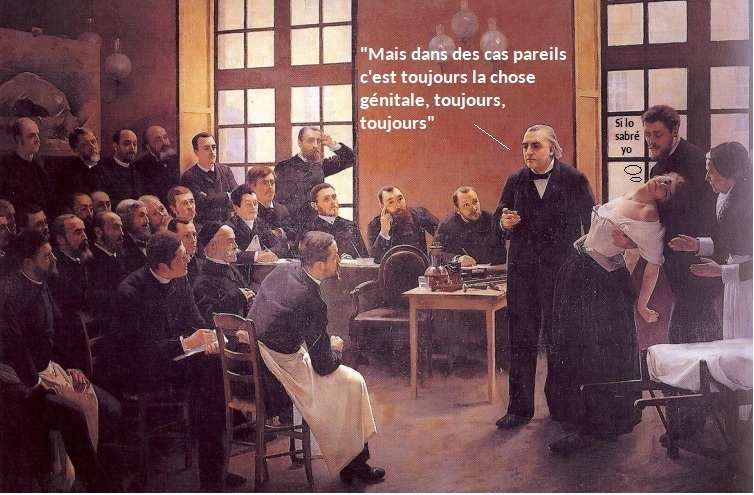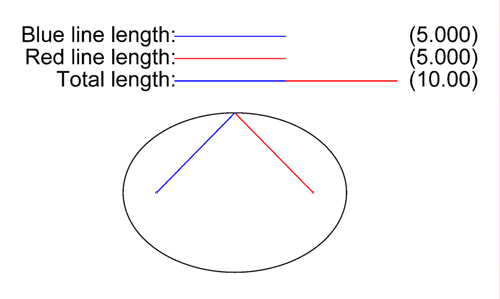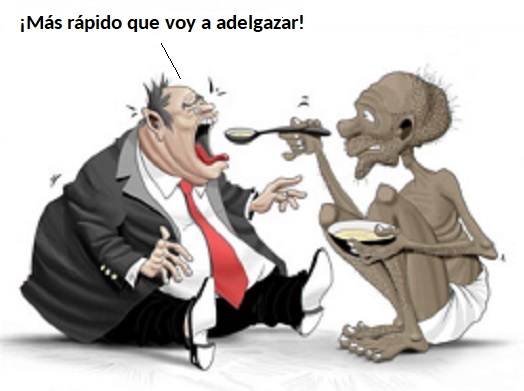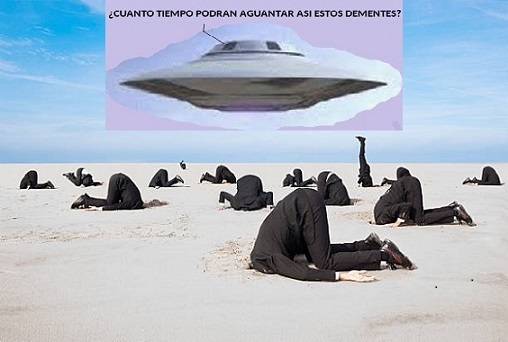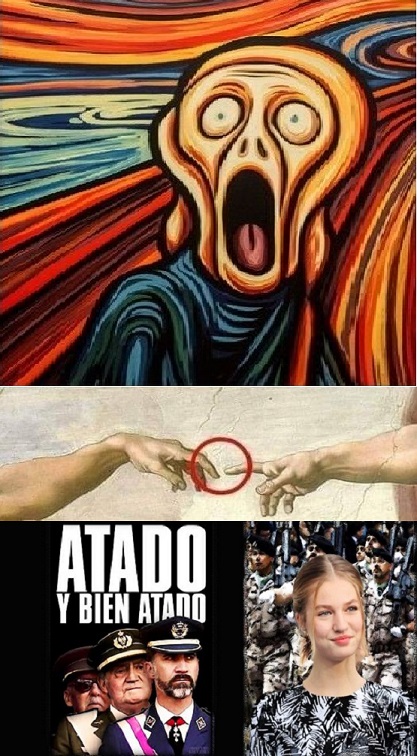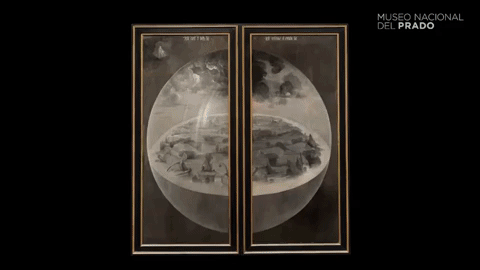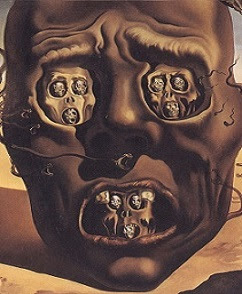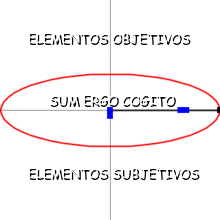Wednesday, January 21, 2015
"TÚ VOTO PUEDE HACER LA DIFERENCIA": LA MAYOR ESTAFA DE TODOS LOS TIEMPOS
...Y es que uno, en su soledad
metafísica, política y social,
está ya a la izquierda
de Lenin, Guevara y Marx,
y, como Bazarov,
el personaje de "Padres e hijos" de Turginev,
dice con él:
"No tengo nada que ver
con el orden existente".
Pero en nuestro caso es mucho peor
porque tampoco tenemos nada que ver
con el orden natural al que nos somete
la propia Naturaleza.
Y como respecto a la metafísica de ésto último
no podemos hacer absolutamente nada,
uno se vuelve a lo que se podría cambiar,
al orden que se refiere Bazarov,
y que, según vemos,
también empieza a ser incambiable:
"El 1% más rico de la población mundial tendrá más dinero que el 99% restante en el año 2016, según un informe de Intermón Oxfam realizado de cara al Foro Económico Mundial de Davos"
¿Es a ésto a lo que votamos
para regresar después a nuestro lugar?
¿Qué pasa con el homo sapiens sapiens?
¿Es a ésto a lo que hemos aceptado
llamarle democracia?
¿Qué nos pasa?
¿O es que aún no nos hemos dado cuenta
de que la genuína libertad
y la auténtica democracia no es otra
más que la democracia económica?
De acuerdo, de acuerdo que es el personaje de arriba sentado en su sillón humano el que tiene
la sarten por el mango
y no podemos hacer nada...pero...
¡por dios y todos los santos
del calendario ateo...!...
!Para empezar haciendo algo
no usemos como loros
la misma terminología
que nos han impuesto...!!!
El primer escalón dialéctico
por el que tenemos que pasar,
si queremos atacar eficazmente
a éstos gangsters que nos roban
hasta la médula espinal,
es introducir en nuestro juicio
un viejo refran:
"al pan, pan, y al vino,vino"
Sólo entónces
haremos revolucionaria la verdad
y saldremos todos corriendo
...no para ir a votar,
sino para que al tipo de la silla que sostenemos
lo pongamos en su lugar,
y como hoy es 21 de Enero y es el día de la cuchilla de Joseph Ignace Guillotin,
pués me atrevo a facilitar ésta sugerencia
que Saint-Just la racionalizó tan bien
bajo el rousseauniano Contrato Social.
Es la única manera que podríamos
tener algo que ver con el orden existente...
JUAN CARLOS DE BORBON: JE SUIS EL MAYOR DELINCUENTE DE ESPAÑA--SE CUMPLE EL 222 ANIVERSARIO DEL AJUSTICIAMIENTO DE OTRO BORBON: LUIS XVI
Juan Carlos de Borbón,
el mayor delincuente de España
Hay un país en el mundo en el que el 21 de Enero
cobra la máxima importancia histórica.
Ese país es España.
¿Por qué?
La respuesta, por supuesto, es obvia:
porque reina en él, ilegalmente,
por derecho testicular
de un criminal de guerra y paz,
un rey Borbón,
descendiente del guillotinado Luis XVI,
y, cuyo padre, Juan Carlos de Borbón,
además de ser un fraticida que mató a su hermano
--por beneficios en la real
sucesión del sátrapa del Ferrol--,
es actualmente el delicuente que más
fortuna personal ha robado en España,
y si la Interpol no lo busca
es porque está al servicio del status quo
y no en su contra.
Asi de sencillo, simple y diáfano
es el panorama.
Cualquiera con un dedo y medio de frente lo sabe.
Así que, en éste día, se hace un deber el recordar
las pabras de Sant-Just que nos hacen ver
que toda monarquía, máxime la impuesta
por el fascismo en el siglo XX,
es un crimen; un crimen contra el pueblo.
A fín de cuentas la acusación de Sant-Just se basa
en el Contrato Social de Rousseau,
el mismo que en España hizo trizas
el Terrorista del Ferrol y al que sus $ucesores
inútilmente lo remendaron para perpetuar
en el poder --in memoriam-- al "sapo iscariote"
--como lo llamaba Leon Felipe--
y su politicam cogitatio del "atado y bien atado"
y seguir a manos llenas robando.
Hoy, si se pudiéra llevar a cabo
el Logos y el coherente raciocinio de Saint-Just,
expresando la justicia del pueblo,
el Borbón español correria la misma suerte
que su antepasado, pero hoy ocurre bajo la democracia
que, precisamente, para eso se ha montado:
para impedir que rueden las cabezas
de los Luises XVI que ya no son llevados al cadalso
y que se reunen en Bilderberg
para dirigirnos desde otros palacios.
Asi que dejemos que Sant-Just, en éste 21 de Enero --que ha empezado hace poco en la costa Pacífico
de éste Imperium impacífico de guantes calados--
nos presente sus premisas de alto magistrado:
"La acusación que se le debe hacer a un rey no es por los crimenes de su administración, sino por el hecho de ser rey de 'per se', porque nada en el mundo puede justificar esta usurpación del poder popular; y bajo cualquier ilusión o convención bajo la que queda cubierta la monarquia, ella es, en si misma, un eterno crimen contra el cúal todo hombre tiene el derecho de armarse y alzarse. Ella -la monarquía- es uno de esos atentados que la ceguera misma de todo un pueblo no sabría justificar, y así, éste pueblo se hace criminal ante la naturaleza en cuanto al ejemplo que ha dado, por ello todos los hombres tienen al respecto la misión de exterminar tal dominación monarquíca en cualquier pais"
Discurso de Saint-Just el 13 de Noviembre, 1792, en J.Mavidal y E. Laurent Editores.
Archives parlamentaires de 1787 a 1860. Recueil complet des débats législatifs
& politiques des Cmabres françaises, Premier Série (1787 á 1799) t. LIII (27 octobre 1792 au 30 novembre 1792), Paris, Paul Dupont, 1898, p. 391
Saint-Just, que conocía perfectamente a Rousseau, lo que hace aqui es aplicar a rajatabla su Contrato Social.
:::::::::::::::::::::::::::::::::::::::::::::::
Saint–Just (13 November 1792)
The first debate over the fate of Louis XVI concerned whether the Convention could try the King at all, and if so, for what crimes. The Constitution of 1791 had promised Louis "inviolability," meaning immunity from prosecution. One of the first speakers was Louis–Antoine Léon de Saint–Just, a brilliant, idealistic, and young Jacobin deputy. He drew on Montesquieu as well as Rousseau to argue that the legislature indeed had both the political authority under the constitution and the moral justification to judge the King.
I shall undertake, citizens, to prove that the King can be judged. . . .
I say that the King should be judged as an enemy and that even more than judge him, we must fight him. Also, in that he was not a party to the contract that unites all French people, the judicial procedure to follow is not to be found in Civil Law, but rather in Common Law.
. . . Perhaps one day, men as far removed from our prejudices as we are from those of the Vandals will be astonished by the barbarity of an age in which the judging of a tyrant was thought to be something sacred.
Where the people, having a tyrant to judge, raised him to the rank of citizen before investigating his crimes and were more concerned about what would be said about them than about the task at hand.
And where a guilty man who belonged to the class of oppressors, the lowest class of humanity, became a martyr to their pride.
One day men will be astonished by the fact that humanity in the eighteenth century was less advanced than in the time of Caesar.
Then a tyrant was slain in the midst of the Senate with no formalities but thirty blows of a dagger and with no other law save the liberty of Rome.
And today we respectfully conduct a trial for a man who assassinated a people, caught in flagrante delicto, his murderous hands soaked with blood!
These same men who are to judge Louis also have a Republic to create. Those who attach any importance to the King receiving a fair punishment will never be able to create a Republic.
For us, the sensitivity of our minds and character is a great obstacle to liberty. We make all error seem more attractive and, more often than not, truth for us is only the seduction of our tastes. . . .
We must therefore courageously advance toward our goal, and if we desire a Republic, we must be serious about it. We judge ourselves severely, I would even say with rage. We think only of tempering the energy of the People and of liberty, whereas we hardly reproach our common enemy.
And everyone, either from weakness or because they stand with the accused, look at each other before striking the first blow. We seek liberty, and we are becoming each other's slaves! We seek nature, and live armed, like wild savages. We desire a Republic, independence, and unity, but we are divided and treat a tyrant with gentleness . . . .
It would seem that we are searching for a law that would allow us to punish the King. . . .
The social contract is between citizens, not between citizens and government. A contract is useless against those who are not bound by it. Consequently, Louis, who was a party to it, cannot be judged by Civil Law.
The contract was so oppressive that it bound the People, but not the King. Such a contract was necessarily void since nothing is legitimate that is not sanctioned by ethics and nature.
These reasons lead you all not to judge Louis as a citizen, but as a rebel. But besides these reasons, by what right does he demand to be judged by Civil Law, which is our obligation toward him, when it is clear that he himself betrayed the only obligation that he had undertaken towards us, that of our protection ?
Is this not the last act of a tyrant, to demand to be judged by the laws that he destroyed? And Citizens, if we were to grant him a civil trial, in conformance with the laws and as a citizen, it would be him who would be trying us. He would be trying the People themselves.
For myself, I can see no middle ground. This man must reign or die. He will prove to you that all he has done, he has done to uphold his office with which he had been entrusted. By discussing this with him, you cannot make him incriminate himself for his hidden malice. He will lead you in a vicious circle created by your very accusations. . .
I will say more: a constitution accepted by a King did not bind the citizens. They had, even before his crime, the right to banish him and send him into exile. To judge a King as a citizen . . . that would astound a dispassionate posterity. To judge is to apply the law. A law is linked to justice, and common to mankind and kings? What does Louis have in common with the French people that they should treat him well after he betrayed them? . . .
It is impossible to reign in innocence. The folly of that is all too evident. All Kings are rebels and usurpers. Do Kings themselves treat otherwise those who seek to usurp their authority? Was not Cromwell's memory brought to trial? And certainly Cromwell was no more usurper than Charles I.
For when a people is so weak as to yield to the tyrant's yoke, domination is the right of the first comer, and it is no more sacred or legitimate for one than for another. These are the considerations that a generous and republican people must not forget when judging a King.
You will be told that the verdict is to be ratified by the People. If that is to be, why can they themselves not pass judgment? If we did not sense the weakness of such ideas, whatever form of government we might adopt would find us slaves.
The sovereign would never be in his place, nor the magistrate in his, and the people would have no guarantee against oppression.
Citizens, the tribunal which must judge Louis is not a judiciary tribunal . . . it is a council . . . it is the People . . . it is you. And the laws that must guide us are those of citizens' rights.
A civil trial would be unjust since the King, deemed to be a citizen, cannot be judged by the same men who have accused him. Louis is a foreigner among us. He was not a citizen before his crime: he could not vote, he could not bear arms. He is even less a citizen since his crime, and by what abuse of justice would you make him a citizen in order to condemn him?
As soon as a man is found guilty, he leaves the polity, but quite to contrary, Louis would gain entry by his crime. I would go even farther . . . if you declare the King to be a citizen, he will slip from your grasp. Which of his obligations would you rely on in the current state of things? . . .
I shall forever contend that the spirit in which the King will be judged is the same spirit with which the Republic will be established.
The theory behind your verdict will be that of your public offices, and the measure of your philosophy in the verdict, will be the measure of your liberty in the constitution. . . .
You will never see my personal will oppose the general will. I shall desire what the People of France, or the majority of its representatives, desire. But, as my personal will concerns a portion of the law which has not yet been written, I open myself to you in all frankness . . . .
It is therefore you who must decide if Louis is the enemy of the French people, if he is an alien. If the majority of you decide to absolve him, then that verdict would have to be ratified by the People, for if no act of the sovereign can truly constrain a single citizen to pardon a King, even less could an act of the magistracy constrain the sovereign! . . .
Source: M. J. Mavidal and M. E. Laurent, eds., Archives parlementaires de 1787 à 1860, première série (1787 à 1799), 2d ed., 82 vols. (Paris: Dupont, 1879–1913), 53–56:390–93.
Saint–Just’s Speech
on the King’s Fate
Any sensitive man on earth would respect our courage. What people ever made greater sacrifices for liberty! What people was more betrayed! What people less avenged! Let the King himself look into his heart and ask how he has treated this People who today are no more than just, no less than great?
Citizens, when first you deliberated the question of this trial, I told you that a king was outside the state, and by nature above the law. This is why whatever covenant may have been agreed upon between the People and the King (in this case an illegitimate covenant), it did not bind him.
Nonetheless, you formed a tribunal, and the sovereign stands at the bar with the King who is before you pleading his case and defending himself.
You permitted that insult to the dignity of the people. Louis has cast the blame for his crimes on the ministers whom he oppressed and deceived. "Sire," wrote de Morgue to the King on 16 June 1792, "I hereby resign. The particular orders Your Majesty has given me prevent me from executing the laws." On another occasion, de Morgue tries to clear himself from having advised the King to approve the writ against fanatical priests. What sort of prince is it, before whom a minister needs to defend his integrity? And that man is supposed to be inviolable! Such is the circle in which you are placed: you are the judges, Louis the prosecutor, and the People the accused.
I do not know where this travesty of the most basic principles of justice will lead you. Had Louis refused your jurisdiction, the trap might not have been sprung. The denial of the sovereignty of the People would have been the final proof of his tyranny.
But since the Revolution Louis has tended noticeably less towards open resistance. Supplely, seemingly unrefined and simplistic, he has shown his skill in dividing men. His unflagging policy was to remain motionless or to move in step with all patriots, just as today he seems even to work with his judges in order to make the insurrection appear to be but the rising of a lawless mob.
Defenders of the King, what would you require of us? If he is innocent, the nation is guilty. We must finish answering, for the very act of deliberating accuses the People.
I have heard talk of an appeal to the People of the verdict which the People itself will pronounce through us.
Citizens, if you permit an appeal to the People, you will be saying to them, "the guilt of your murderer is in doubt." Do you not see that such an appeal would tend to divide the People and the legislature, would tend to weaken representation, to restore monarchy, to destroy liberty?
And if plotting succeeds in altering your verdict, I ask you gentlemen if you would be left with any option besides renouncing the Republic and returning the tyrant to his throne.
There is but a small step from the King's exoneration to his triumph, and from there to the triumph of monarchy. Yet should the accusing people, the ravaged people, the oppressed people, be the judge?
Did they not decline that responsibility after the tenth of August? Nobler, more scrupulous, less cruel than those who would send the accused before them, the People wanted a council to decide his fate.
That tribunal has already shown too much weakness, and that weakness has already softened public opinion. If the tyrant appeals to his accusers, he does what Charles I never dared.
In a functioning monarchy, it is not you who judge the King, for you are nothing by yourselves, but the People judge and speak through you.
Today will decide the fate of the Republic. It is doomed if the tyrant goes unpunished. The enemies of the common good will reappear, meet, and hope.
The forces of tyranny will pick up their pieces like a reptile renewing its lost tail. All evil men are for the King. Who here then can join him?
False pity is on the lips of some, anger on the lips of others. Everything serves to either corrupt us or frighten us down to our souls. Be steadfast in your severity and rest assured of the People's gratitude in time to come.
Be more attuned to the true interests of the People than to the empty concerns and empty clamor by which the schemers seek to play upon the respect you have for the rights of the People, the better to destroy those rights and deceive the People.
You called for war on all the tyrants of the world, and you would respect your own! Are bloody laws enforced only against the oppressed, and is the oppressor to be spared?
We have shown an odd scorn towards the principles and character of this situation. Louis wishes to be King, to speak as King even while denying it. But a man unjustly placed above the law can present the judge only with his innocence or his guilt.
Louis can only challenge us by proving his innocence and innocence has no need to challenge its judges for it has nothing to fear. Let Louis explain how the papers you have seen may favor liberty, let him show his wounds, and let us judge the People.
Some will say that the Revolution is over, that we have nothing more to fear from the tyrant, and that the law now calls for the death of a usurper.
But, citizens, tyranny is like a reed which bends with the wind and which rises again. What do you call a Revolution? The fall of a throne, a few blows levied at a few abuses? Moral order is like physical order: abuses disappear for an instant, just as the morning dew dries, and then just as it falls again with the night, so the abuses reappear.
The Revolution begins when the tyrant ends.
I have attempted to show the conduct of the King. It is now for you to be just. You must put aside all considerations but those of justice and the common good. Above all, you must not compromise your liberty which was acquired at so high a price. You must pronounce a verdict which allows for no appeal.
If you do not, the greatest of criminals, and a King, will have been the first to enjoy a right refused to citizens, and the tyrant will once again be above the law, even after his trial.
Nor should you permit the verdict to be challenged, for it reflects the wishes and opinions of all. If those who spoke of the King are challenged, we will challenge, in the name of France, those who said nothing for our country or those who deceived it.
France is amongst us; let each man choose between her and the King, between the exercise of justice by the People and the exercise of your own weaknesses.
Weigh, if you will, the example which you owe the world, the impetus you owe liberty and the unflagging justice you owe the People, against criminal pity for one who never felt such a sentiment.
Say to Europe as it bears witness: Unite your kings against us for we have rebelled against kings.
Have the courage to speak the truth, for it seems to me that there are those here who fear sincerity.
Truth burns silently in all hearts, like a lamp burning over a tomb. Yet if there be someone among you unconcerned by the fate of the Republic, let him fall at the feet of the tyrant, let him return the knife with which he slaughtered your fellow citizens, let him forget all crimes of the King and tell the people that we have been corrupted, and that we have been less interested in their well-being than in the fate of an assassin.
Source: M. J. Mavidal and M. E. Laurent, eds., Archives parlementaires de 1787 à 1860, première série (1787 à 1799), 2d ed., 82 vols. (Paris: Dupont, 1879–1913), 53–56:706–10
Subscribe to:
Comments (Atom)
Blog Archive
- ► 2010 (272)
- ► 2011 (343)
- ► 2012 (355)
- ► 2013 (352)
- ► 2014 (502)
- ▼ 2015 (416)
- ► 2016 (334)
- ► 2017 (330)
- ► 2018 (296)
- ► 2019 (299)
- ► 2020 (358)
- ► 2021 (358)
- ► 2022 (406)
- ► 2023 (309)
- ► 2024 (250)
- ► 2025 (281)















































































































































































































